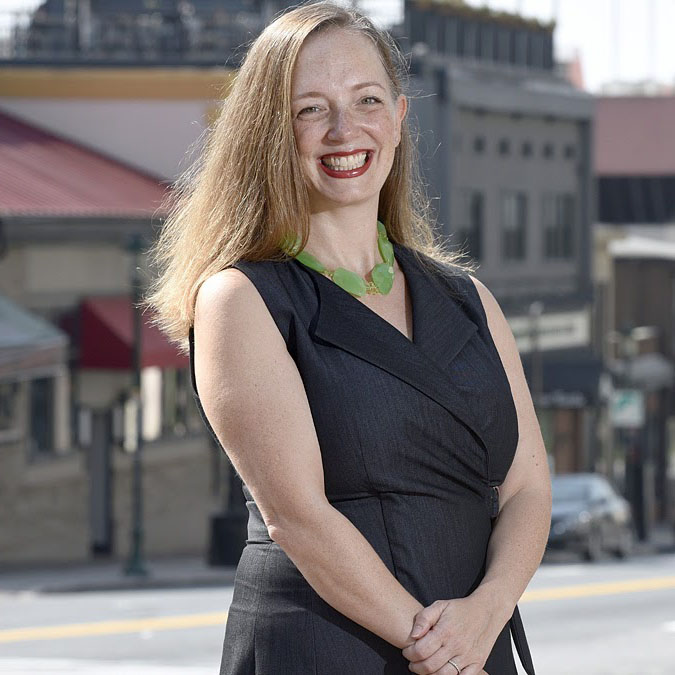
When I was 18 in my first year of college, I hurt a friend. She was a woman I had met the first week of school and immediately bonded with–a Turkish Muslim woman who expressed desire to join me at the Passover seder. I questioned her interest in learning about my Jewish observances. I couldn’t understand why she would want to engage in what I saw as the landmine between us. It never occurred to me that a Muslim person would be interested in Jewish life, and the unfortunate reverse of that belief is that I had never learned much about that faith.
Now, I sit in the IJCS Justice Leaders Fellowship every month, soaking up the wisdom and experiences of people of other faiths, and the jewels of justice proffered by Muslim, Jewish, and Christian traditions. What I see now is not a potential disagreement over differences. I see what we all have in common: a respect for the sanctity of meaningful work, a holy obligation to balance resources and treat the needs of others as those of ourselves, and abundant guidance on living justly.
During the first session with ICJS Muslim Scholar, Zeyneb Sayilgan, she showed us a picture of Muslims in prayer in front of shops on a crowded street. Dr. Sayilgan asked what we saw in the picture. Many responded, and I contributed something about the commitment of the people to their faith and its observance, their understanding that life is about more than work, and their determination to live their values. I flushed a little with pride when Dr. Sayilgan said that was exactly what she had been thinking about the picture. That moment reminded me of the incident at college nearly three decades ago.
Luckily it did not take me 30 years to open my mind to learning about other faiths. The Justice Leaders Fellowship has been a unique opportunity to do so in community. What I have learned–at the heart of it all–is that we have remarkable similarities. On the topic of economic justice, we consider the sanctity of work and its value beyond economics, we have explicit models to support and uplift all community members, as well as “strangers,” and we have scripture to interpret as guides for our principles and actions.
I participate in the Justice Leaders Fellowship representing several organizations. I work for the Baltimore County Council, I am a volunteer leader with Baltimore Women United and Jews United for Justice, and I am on the board of Let’s Thrive Baltimore. Let’s Thrive Baltimore started with a different name; it was originally called No One Left Unhelped. I loved that name, for its directness and mission orientation. But at some point, we realized as an organization that it wasn’t about us helping everyone. It was about supporting the whole community and everyone in it to thrive. We do this by paying young people for their participation in the program, honoring their time and effort as work deserving of compensation. We train program participants for leadership opportunities and make those opportunities available not at some distant time, but right now. We uplift the whole family with everything from food when there is a need, to educating people on how to improve their credit scores so they can qualify for a mortgage and buy a home.
The values of Let’s Thrive Baltimore are exactly what we’re learning about in the Justice Leaders Fellowship. Our work and our economy is about much more than our survival, though that is critical. Our faith perspectives can help us envision a more robust concept of economic justice, working towards an economy in which people feel valued as human beings, know that their work is appreciated as crucial for communal functioning, and that more balance is achieved.
One month in our breakout session, someone in our small group was talking about a negative experience, and he mentioned that the person with whom he had the experience was Jewish. I didn’t see how, in that particular situation, the person’s religion impacted the events that occurred. Because we are forming a community among the fellows, because we are taking the time to get to know and understand each other, because we see the commonalities among our faiths, I thought it was important to challenge myself to ask him why he mentioned this person’s religion. It required courage for me to speak up in that moment, and bravery for him to pause and engage in the conversation.
To me, it was a significant event, a small victory for the fellowship we are creating, and the common understanding towards which we are working. While the lessons that we have learned thus far in the Justice Leaders Fellowship can be applied to our individual organizations, for me one of the most valuable parts of this experience is the community we are establishing together. What could the relationships developed in the Justice Leaders Fellowship mean for the future of Baltimore?
 Jessica Klaitman works for the Baltimore County Council and is on the board of Let’s Thrive Baltimore, Jews United for Justice Campaign Fund, and the steering committee of Baltimore Women United, and is a member of the 2021 ICJS Justice Leaders Fellowship.
Jessica Klaitman works for the Baltimore County Council and is on the board of Let’s Thrive Baltimore, Jews United for Justice Campaign Fund, and the steering committee of Baltimore Women United, and is a member of the 2021 ICJS Justice Leaders Fellowship.
Baltimore is part of a national conversation around questions of justice, race, and community. Members of the ICJS Justice Leaders Fellowship consider how Jewish, Christian, and Muslim teachings and practice can contribute to the public conversation about (in)justice. Opinions expressed in this blog are solely the author’s. ICJS welcomes a diversity of opinions and perspectives. We do not seek a single definition of justice between or within traditions.